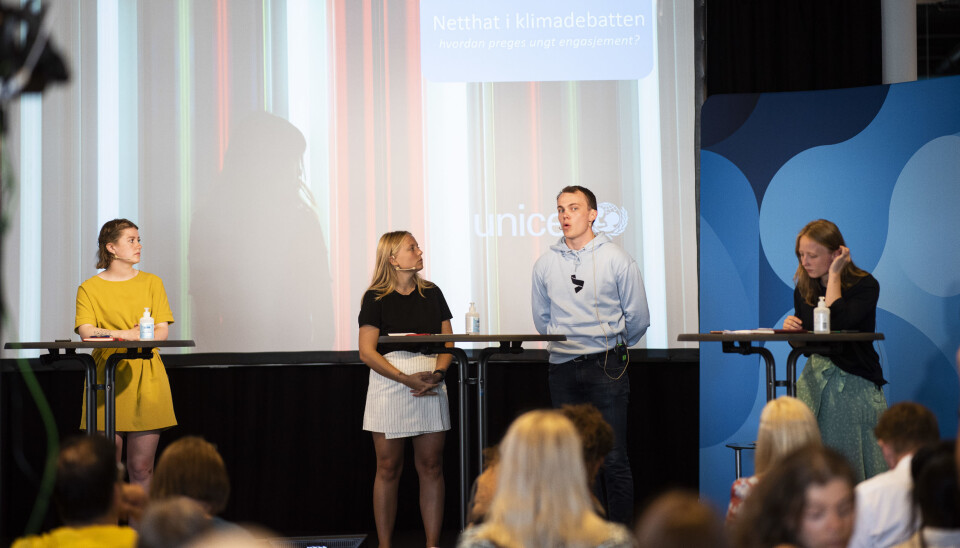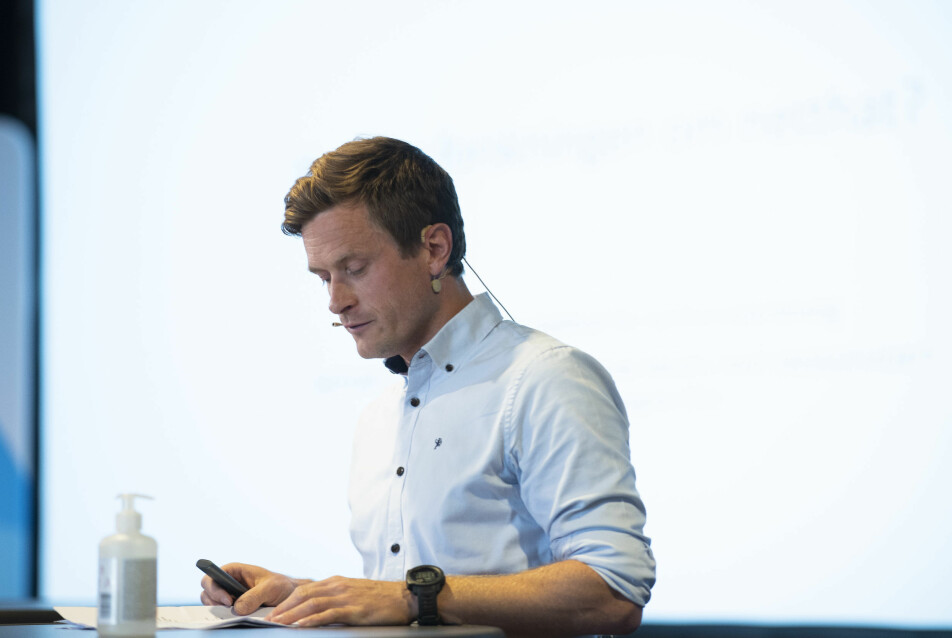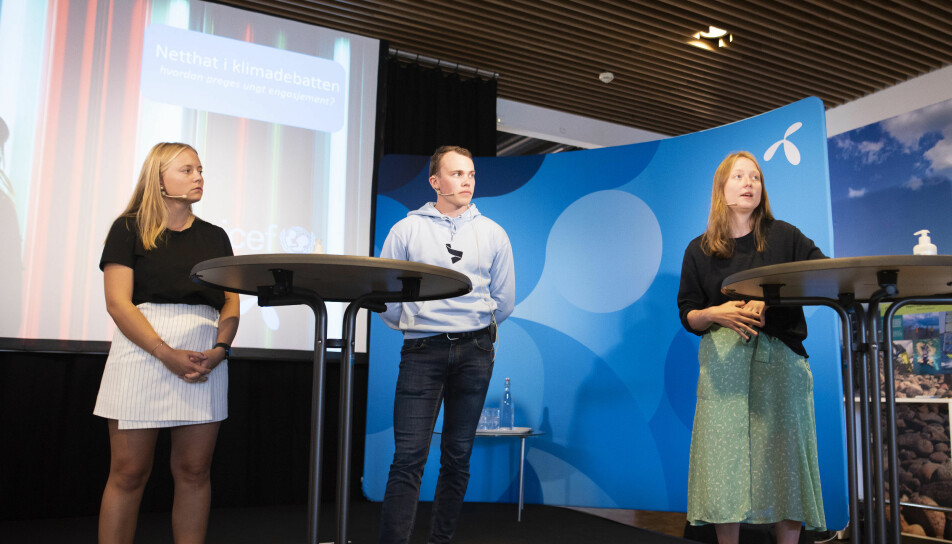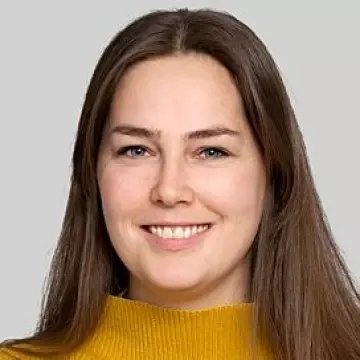
Why are young climate activists being harassed online?
How does this kind of abuse impact young people’s political engagement?
About 18 percent of people who post online have been exposed to derogatory comments, according to Audun Fladmoe's surveys. Ten per cent have been subjected to hate speech and four per cent to specific threats.
Fladmoe is a researcher at Norway’s Institute for Social Research and has studied hate speech online. He participated in a seminar where young politicians from across the political spectrum, police officers, journalists and researchers talked about hate speech targeting young people.
It is important to mention that the researchers also surveyed people in the LGBT community who are subjected to cyberbullying far more often, to the tune of 36 percent, 23 percent and 15 percent respectively.
In addition, Fladmoe relates that a Young-in-Oslo survey from 2018 indicated that young people with an immigrant background experience significantly more hate speech directed at their skin colour, ethnicity, country background and religion than other students do.
Seeing others being provoked can gag us
Hate speech and direct threats were the topic of one of the sessions during Arendalsuka this year.
Fladmoe points out that many people in Norway have not been subjected to this type of abuse.
“After all, the majority of us aren’t the target of cyber bullying,” he says.
“But another important point is that this hate has become much more visible.”
The vast majority of us have seen or heard online hate speech. As many as 70 percent of the respondents in Fladmoe's survey answered that they have witnessed online hate speech.
“This can contribute to some people choosing not to speak out,” he says.
“Research often shows that witnessing others being exposed to hate speech – especially if it’s someone you identify with – can have negative consequences when it comes to being willing to participate and engage in debates.
Climate and environmental debates more often marked by hate
The topic of the seminar at Arendalsuka focuses on hate speech that is targeted at youth who are engaged in climate and environmental issues.
“It’s obvious that the climate and environmental debate is characterized by high emotional temperatures,” says Fladmoe.
He says the debates that most often lead to hate speech are ones about climate and environment, Norwegian politics in general and immigration.

Young people concerned about climate and environment
Climate and environmental issues are topics that young people in particular are interested in. Perhaps no wonder, since climate changes will primarily affect today’s youth.
Many young people – especially those who get involved in political parties with environmental profiles – experience online harassment when they write articles for newspapers and on social media.
In addition to youth, people with a minority background are subjected to more hate speech than others.
“Youth, women and people with minority backgrounds tend to react more strongly to harassment than others. They also withdraw more often,” says Fladmoe.
When minorities experience harassment
Agnes Viljugrein is the former leader of Oslo AUF and is now a board member of the Norwegian Labour Party. She has been subjected to hate speech, but is more concerned about minority youth who are impacted.
“When I was the leader of AUF in Oslo, we had a lot of young people with minority backgrounds. We had to spend a lot of time and resources to help them after they had participated in public debate,” Viljugrein said at the seminar.
She says it’s been difficult as a union representative to prepare members for the harassment they are likely to face when they speak.
“The racist hate speech came as a shock to a lot of them,” she says.
Viljugrein says that it is a challenge to get these young people to participate and get involved in the first place.
“And then when they’ve actually committed to getting involved, they get a lot of abuse heaped on them. That makes things difficult,” she says.
Viljugrein has been in dialogue numerous times with parents who don’t fully understand what their son or daughter has done to make them the target of so much vitriol and hatred.
“This is a rather complex area to conduct organizational work in,” she says.

Young public debaters with no support
The young politician is also worried about youth who do not have a support system around them when the storm comes.
“The advantage for people who are in youth wings of political parties is that we have an apparatus to support us when we speak in the debates. But what about individuals who don’t have that apparatus, who are completely alone and have to handle all these things themselves?” she asks.
“Many young public debaters spend a lot of time and energy getting involved but have no one to support them when it really matters,” says Viljugrein.
Would rather talk about politics than harassment
“I'm tired of talking about being harassed,” says Oda Sofie Pettersen.
She is 21 years old and the parliamentary candidate for the Green Party Agder. If she gets enough votes she’ll be working in Parliament after the election.
Pettersen would rather talk about environmental policy and measures that can help limit greenhouse gas emissions.
Those are the topics she is most interested in – not all the hate speech she gets because she is young, a woman, or a climate activist.
“Being a young politician today means that online harassment is always a topic of discussion. And I'm a little fed up with that, to be completely honest,” she says at the Arendal seminar.
Adult politicians need to take more responsibility
Pettersen believes that adult politicians escape the harassment debate that young people face.
“Every time I go to Arendalsuka, I have to answer questions about harassment. I’d rather talk about politics,” she says again.
She says that every time NRK calls her, it’s because she has been harassed and not because she has political opinions that are interesting or arguments that people want to listen to.
“This is something we can all get better at,” she says.
“We should get the adult politicians to answer questions about online harassment that targets young people. Perhaps they can take a little more of the responsibility in this debate so that it doesn’t have to be our burden alone.”
What can we do?
It can feel difficult to overcome the problem of cyber hate and hate speech. Facebook and comment fields appear to live their own lives.
But some measures could help, according to the young politicians.
They are already doing one thing, and that is to prepare young people before they write posts and join debates.
“When twelve-year-olds want to express themselves in the newspaper, we have to remind them that there’s a comment field,” says Pettersen.
She also suggests that an online solution could be implemented that makes it easier to report online harassment. Then those who are exposed to hate speech could communicate directly with the police.
“This should lower the threshold for reporting such events,” she says.
Viljugrein believes we need to have more discussion about the way social media is created.
“I don’t have a political solution on how we should manage Facebook, but it’s ironic that what you’re rewarded most for are likes and shares. And you get that the most when you provoke people with emotion-laden messages.
She also believes that the media should help make debates less heated.
Translated by Ingrid Nuse.































